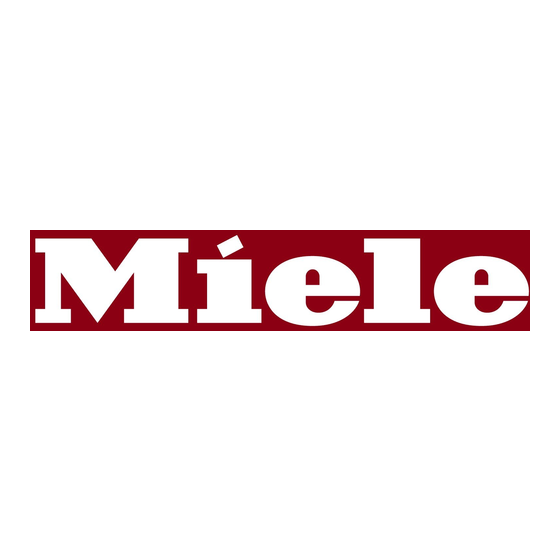Miele DA 217-2 Operating And Installation Instructions - Page 16
Browse online or download pdf Operating And Installation Instructions for Ventilation Hood Miele DA 217-2. Miele DA 217-2 40 pages. Ventilation system
Also for Miele DA 217-2: Operating And Installation Instructions (44 pages)

Cleaning and care
Before any cleaning or maintenance
work the cooker hood must be dis-
connected from the mains supply.
Ensure that:
– it is switched off at the wall socket
and the plug has been withdrawn
(do not pull on the cable, only on
the plug), or
– the fuse has been withdrawn from
the fused spur connection unit, or
– the mains fuse is withdrawn, or
– the screw-out fuse is removed (in
countries where this is applicable).
Warning: The surfaces and controls
are susceptible to scratches and ab-
rasion. Please observe the following
cleaning instructions:
All external surfaces and controls
can be cleaned using warm water
with a little washing up liquid applied
with a soft sponge.
Wipe dry using a soft cloth.
Do not use too much water when
cleaning the controls. Water could
penetrate into the electronics and
cause damage.
Avoid:
– cleaning agents containing soda,
acids or chlorides,
– abrasive cleaning agents, e.g. pow-
der cleaners or cream cleaners,
– abrasive sponges, e.g. pot scourers
or sponges which have been pre-
viously used with abrasive cleaning
agents.
16
These will damage the surface material.
Stainless steel surfaces can be
cleaned using a proprietary non-ab-
rasive cleaning agent designed specifi-
cally for use on stainless steel.
To help prevent re-soiling, proprietary
conditioning agents for stainless steel
can also be used.
Apply sparingly with an even pressure.
A microfibre "E-Cloth" is available from
the Miele UK Spare Parts Department,
Part Number 98013530, which is suit-
able for cleaning surfaces such as
stainless steel, glass, plastic and
chrome.
These controls may suffer discolour-
ation or damage if soiling is left on
them for too long.
Remove any soiling straight away.
Do not use stainless steel cleaning
agents on these types of controls.
